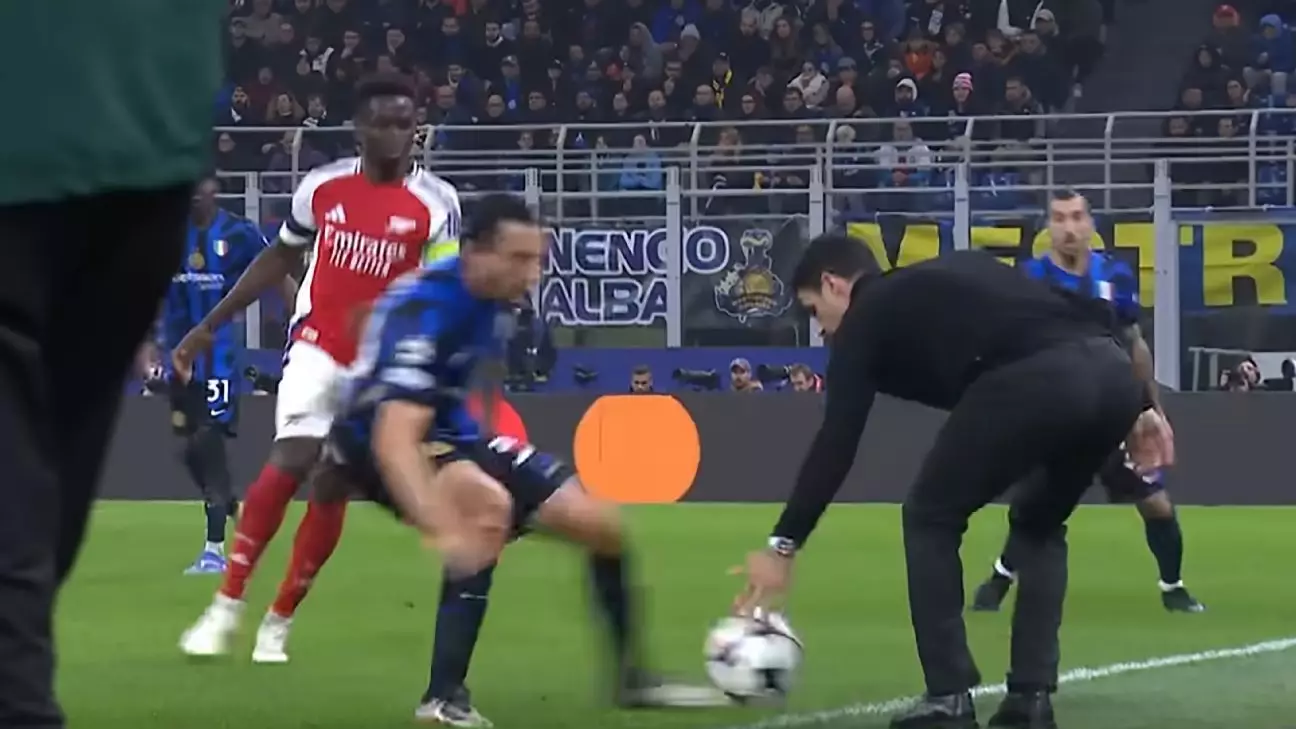The recent incident involving Arsenal manager Mikel Arteta during a Champions League match against Inter Milan has sparked significant debate regarding officiating standards and the governing rules of football. In this match, Arteta intervened by picking up a ball that was presumably headed out for a throw-in—a move that could have warranted a red card under the existing laws. Referee Istvan Kovacs opted for a yellow card instead, a decision that has been criticized as inconsistent and erroneous. Such occurrences highlight the urgent need for a reevaluation of existing rules governing coach interference and referee decision-making.
The International Football Association Board (IFAB), the body responsible for the laws of football, has taken notice of this lapse in officiating judgment. Their recommendation for a potential law change reflects an understanding of the nuances involved in coaching interactions during a match. By allowing for a more lenient approach—granting a mere caution when the coach’s intent is to expedite game flow—it acknowledges the dynamic role that coaches play in live gameplay. This update aims to ensure that the regulation fosters a more fluid game without penalizing coaches unduly for actions that are not malicious in intent.
Arteta’s situation is not an isolated case; similar instances have occurred with other managers, such as Carlos Corberán and Derek McInnes, who faced ejections under comparable conditions. This repetition signals a broader trend that has caused confusion regarding the punishments meted out for coaches’ in-game behaviors. With the upcoming IFAB Annual General Meeting planned for March 1, where the proposed changes will be discussed, the governing body is positioned to potentially redefine disciplinary measures impacting managerial conduct, thus contributing to the integrity of officiating.
In addition to addressing the regulations surrounding coach interference, IFAB is also considering modifications to the dropped ball rule. Current guidelines favor the team that maintains possession when the ball inadvertently contacts the referee. The proposed adjustment will see that if a reckless pass clearly favors the opposing team, they should be awarded the dropped ball instead. This shift emphasizes fair play and aims to eliminate any advantage gained through inattention or misjudgment by the officiating team, thus fostering a more equitable environment for competition.
As these rule changes are proposed, a broader discussion regarding clarity and consistency in officiating is vital. Refining regulations governing the behavior of coaches and the process of administering dropped balls could fortify the framework within which football operates. In a sport where every decision can substantially influence the outcome of matches, ensuring that such regulations are up to date and properly communicated to all parties involved is fundamental. The prospect of new legislation marks a potential turning point, steering football toward a more transparent and fair future.

Leave a Reply